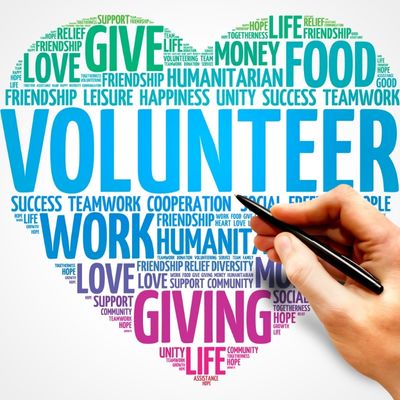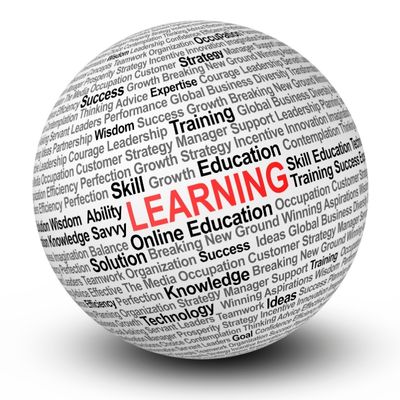Life is made up of twelve different areas:
We tend to jam everything we can into our lives. But we still aren’t always able to do all the things in any given area that we would like to be doing. Learn the key strategies to balance it all.
Community

A community is a group of people who live near each other or share interests, values, and goals. This could include people who live in the same town or neighborhood; attend school, church, or work together; belong to the same group, or take the same classes. You can also find community in online groups and spaces.
This area of life is about support and can make a difference in your or someone else’s life. It involves giving your resources, gifts, talents, skills, and/or time to causes that you believe in for the betterment of your community. It could also be about using the resources your community offers. Your community may provide events, services, and programs that you and your family can participate in.
When we are part of a community, we feel supported. We have people to rely on when things get tough, and people to celebrate with when things are going well. A strong community can make us feel like we belong somewhere and that we matter.
Key Strategies
- Give back to the community in meaningful ways such as volunteering time and resources.
- Support local organizations.
- Engage with neighbors and community members to build lasting relationships.
- Shop local to support local businesses.
- Take part in voting. Vote for people who will represent you and your community.
- Consider donating blood or being a living donor.
Website Resources
https://bethematch.org – National Marrow Donor Program
Family

The family area of life is a more narrowed version of the relationship area. It concentrates more on your immediate family. It deals with how to spend quality time with the people you see every day for big portions of your life. It’s also about teaching your children strong values about life, and your faith, and all the things that are truly important to you.
Key Strategies
- Spend quality time together, such as taking trips, playing games, or having meaningful conversations.
- Teach your children responsibilities so they will have these skills when they grow up.
- Show support for one another through life’s ups and downs.
- Spend birthdays, anniversaries, and holidays together, when possible.
- Eat dinner together, if possible.
- Teach your children manners and respect for adults and other children.
- Keep in contact with your children when they get older and your parents as you get older.
- Keep in contact with extended family on a regular basis.
Website Resources
www.focusonthefamily.com – A global Christian ministry helping couples and families with issues through radio broadcasts, websites, and other resources based on morals and values grounded in biblical principles.
www.parenting.org – Providing valuable resources, articles and tips offering parenting help in today’s world.
www.pluggedin.com – A Focus on the Family publication offering reviews, articles and discussions about popular entertainment such as movies, videos, TV episodes, songs and games.
www.thetvboss.org – A website created by the TV and movie industries to give parents tools and information to guide their children’s TV consumption.
https://www.familyreunions.com/ – A family reunion planning website.
www.ancestry.com – Genealogy, family trees and family history records.
Financial

The financial area of life is about being in control of your money. It’s also about having enough money for everything you need and for some of the things you want. The amount of money you have is relative to the amount of money you get (from work and other sources) and the amount of money you spend. This area also involves getting out of debt and staying there. Financial freedom should be your goal.
Key Strategies
- Know how much money you have at all times. At least have a very close estimate.
- Have a plan for spending your money (a budget). It’s the key to managing your money.
- Don’t spend beyond your means. That means don’t spend more money than you have. Nowadays it is easy to do that by using credit or by not paying bills on time and then buying something else instead.
- Tithe to your local church.
- Have an emergency fund to fall back on.
- Have a system for paying bills.
- Avoid using credit cards and getting loans whenever possible.
Food and Nutrition

Eating nutritious food plays a big part in staying healthy and keeping fit. This life area involves planning meals, buying food, preparing meals, and making the right food choices. Take care to stay away from food which is high in calories and fat.
Key Strategies
- Eat a balanced diet of food such as fruits, vegetables, lean proteins, whole grains, dairy, and healthy fats.
- Drink plenty of water throughout the day to stay hydrated.
- Eat foods that are closer to the main source (whole foods). For example, eat apple slices rather than a slice of apple pie.
- Have healthy snacks on hand to eat instead of dessert or candy.
- Limit processed foods.
- Eat in moderation.
- Plan a menu for the week. Pick healthy meals. Choose some quick meals for the days when you are short on time.
- Make a grocery list with your menu in mind to ensure that you have everything on hand when you make your meals. Try to buy only what’s on your list.
- Limit grocery shopping trips. Try to do the bulk of your shopping only once per week. Shop for fresh foods and perishables as needed.
Website Resources
www.heart.org – American Heart Association
Fun and Travel

The Fun and Travel area of life is about spending time doing things you enjoy. It can help you recharge and helps you to unwind. This life area can also be called entertainment or recreation.
Fun consists of such a variety of activities from sedentary ones like reading or playing board games, to more physical activities like bowling with friends, hiking, or skiing. You have a lot to choose from.
Travel can be exciting. It lets you explore what the world has to offer. It allows
you to experience new places, cultures, cuisines, and activities. While you can
travel long distances by airplane, bus, train, and even cruise ships, you can also keep your travel local and inexpensive.
Fun and Travel can bring joy, adventure, and balance into our lives. These
activities can also help us connect with family and friends while making
meaningful memories along the way.
Whatever activity you choose, it’s very important to do something on a regular basis. Fun and Travel has many important benefits such as improving physical and mental health, socializing with others, and providing relaxation and enjoyment.
Key Strategies
- Plan trips that provide opportunities for adventure and exploration while creating lifelong memories with family and friends.
- Take time to relax and have fun by engaging in activities such as hiking, playing sports, reading books, or watching movies.
- Enjoy different cultures through travel and visiting new places.
Health and Fitness

The health and fitness area of your life is about taking care of your body and mind. Aside from diseases, if you take care of yourself, you can have good or even excellent health. Your body has to be properly maintained by eating nutritious food and getting enough exercise and sleep. Get regular checkups to help catch any problems that may occur.
While taking care of your physical health can help you mentally, it’s also important to monitor your mental health. Check in with yourself often to see what areas you need to focus on and if you need to seek professional help.
Key Strategies
- Participate in regular physical activity to maintain physical and mental health. Physical activity is anything that makes you move. It can be split up between different activities throughout the day and week. Use this guideline from cdc.gov: Children 3-5 years old need to be physically active throughout the day. Children 6-17 years old need 60 minutes of physical activity daily. Adults need 150 minutes of physical activity each week.
- Develop an exercise program for your individual needs that include a mix of cardiovascular activities, strength training, and stretching.
- Drink plenty of water every day.
- Get plenty of sleep every day. Adults need at least seven hours of sleep daily.
- Take preventative measures to stay healthy, such as getting regular health checkups, avoiding smoking and excessive drinking, and managing stress levels. See your general doctor for a checkup once per year. See your dentist every six months and your eye doctor once per year.
- See a doctor or dentist if anything causes you concern.
- Follow your doctor’s instructions when under their care. Keep them informed of any changes or problems.
- Be aware of any health problems in your immediate family. Be able to recognize any signs of symptoms. Seek medical attention as soon as possible if they appear.
- Get health insurance if available.
- Keep a personal health record.
- Wash hands frequently to prevent illness.
- Keep your brain active with activities such as reading and doing word and number puzzles that make you think. Also try to learn new skills on a regular basis.
- Practice healthy coping mechanisms such as journaling, yoga, or meditation to manage stress.
- Address mental health issues such as stress, depression, or anxiety with counseling or therapy if needed.
Website Resources
www.cdc.gov – Center for Disease Control and Prevention
www.butyoudontlooksick.com – Providing various information about chronic disease. Written by a Lupus patient.
www.ymca.net – Focusing on youth development, healthy living, and social responsibility. Locate a YMCA near you.
www.healthywomen.org – This is a health information source for women.
www.fitness.gov – President’s Council on Fitness, Sports and Nutrition. Engaging, educating, and empowering all Americans to adopt a healthy lifestyle that includes physical activity and good nutrition.
Home (Household)

Keeping up on your home can be a challenge. Between cleaning and organizing, it can feel like a never-ending job. There always seems to be something else to do.
You also have to keep your home well maintained and in working order. Take care of repairs when needed, or report them to your landlord, property manager, or maintenance staff.
Your home should be a comfortable and relaxing place to be, where you can invite family and friends over without going into a panic about what it looks like.
Key Strategies
- Have a place for everything in your home so you can find it when you need it.
- Have a system for filing paper.
- Have a schedule for all chores, cleaning, organizing, and maintenance throughout the year. Figure out when to do it, how often it needs done, and who will do it.
- Delegate the jobs you don’t like to do or aren’t good at. There may be someone in your family who likes doing a job that you don’t particularly care for. There also may be someone who is better at it than you, who can get it done much quicker.
- Everyone in your household, who is able, should help do chores.
- Everyone should pick-up after themselves if they are able to do so.
- Take a few minutes each day to straighten up each room in your home.
- Periodically go through your things. Give away or sell things you’re not using. Throw away or recycle the things that are broken.
- Practice energy conservation habits such as using natural light during the day, unplugging unused electronics, and turning off lights when leaving a room.
Website Resources
Learning/Education

Learning and education helps us to be well-rounded individuals and get a broader understanding of the world around us. It can be fun to learn new things and satisfy your curiosity. You can take courses or classes for self-improvement and to learn new hobbies. You can also go to college or trade school to learn a skill for a job. Knowledge can give you opportunities to earn more money.
Key Strategies
- Never stop learning. Continue to acquire new skills, knowledge, and information through various sources such as books, podcasts, classes, or seminars.
- Take classes and courses on subjects you are interested in and want to learn more about.
- Find the way you learn best. Investigate learning styles. Not everyone learns the same way.
- Study every day. If you are taking courses or classes, take notes on what you are being taught. Review the material every day.
- Seek out mentors who can provide valuable advice and guidance in areas of personal growth.
- Keep up to date on local and world current events.
Website Resources
www.lumosity.com – Improve your brain health and performance.
Relationships

The relationship area is your connection with all the people in your life. It’s about spending time with the people you care about, whether they are related to you somehow, or they are just good friends.
Friends and family are a very important part of life. We count on them for encouragement, companionship, and support. They inspire us, make us laugh, and give us a sense of belonging. We, in turn, can give back all those same qualities, actions, and feelings. Our relationships can give us real joy as we remember the times we’ve spent together. As we look back, we can reflect and grow.
Key Strategies
- Make time for meaningful conversations with family and friends. Keep in touch with them on a regular basis.
- Practice active listening in order to build strong relationships with others.
- Celebrate victories together and offer support during difficult times.
- Have qualities of a healthy relationship, such as honesty, trust, and respect.
- Learn to recognize signs of an abusive relationship. Seek help if you notice these signs in any type of relationship you have.
Website Resources
www.breakthecycle.org – Empowering youth to end domestic violence.
Self

The self area of your life is mainly about taking care of yourself. It’s about all the things you need to do to keep you physically, mentally and spiritually fit. This includes fitting in “down time” every day so you can relax and not feel guilty about doing it. It’s also about being creative and letting your personal style show through in all you do.
Keys
- Spend time by yourself on a regular basis.
- Keep in contact with friends on a regular basis.
- Have some down time every day. Your body needs to be rested and “recharged.”
- Take care of yourself physically, mentally, and spiritually.
- Physically: Exercise on a regular basis. Keep up on grooming and hygiene.
- Mentally: Your mind needs exercise like the rest of your body. Read, play games that make you think, and learn new skills on a regular basis. Be sure not to neglect your mental health. Reduce stress and anxiety with relaxation techniques, meditation, and coping strategies.
- Spiritually: Don’t do things that go against who you are and what you think God expects of you. Fill your mind with good things. Spend time with God on a daily basis by praying and studying His word.
- Be creative. Let your style show through in the way you decorate, dress, and the overall way you live. It will make you feel good about yourself and express who you are. Get involved in the hobbies that peak your interest, if time and money allow.
- Try to have a sense of humor. See the funny side of things. Laugh, it’s good for you.
- Be aware of your values, so you can recognize what is important to you and what isn’t.
- Take time for activities that bring you joy and relaxation.
- Invest in yourself through personal development, learning new skills, or attending workshops.
Spiritual

The spiritual area of life is about your relationship with God. It’s about building that relationship, growing in Christ, and following the plans God has for you.
Key Strategies
- Pray every day.
- Read your Bible every day.
- Have regular fellowship with other Christians.
- Tell others about Christ.
- Show people by your actions that you are a Christian.
- Thank God every day for all He has given you.
Website Resources
www.needhim.org – Need Him is a live conversation about Jesus.
www.iamsecond.com – I am second is a movement to inspire people of all kinds to live for God and for others. Provides insight into dealing with typical struggles of everyday living.
www.biblica.com – This site is all about the bible. Visit biblica.com to read or listen to the bible and to find out the many other ways this site is transforming lives through God’s Word.
www.tonyevans.org – Inspires, encourages, and deepens your walk with God through their audio and television broadcasts. Plus much more.
www.chataboutjesus.com – Talk to someone about a relationship with Jesus Christ.
https://www.blueletterbible.org/ – A great website offering devotionals and a bible search.
https://biblehub.com/ – Sermons as well as bible translations from Hebrew.
https://www.bibleref.com/ – Easy to understand discussion of the scriptures.
https://www.gotquestions.org/ – Ask Bible related questions as well as see the top twenty questions about the bible.
Telephone
1-888-NEED-HIM – Talk to someone about a relationship with Jesus Christ.
Other Strategies
Salvation Steps:
Confess that you are a sinner. And ask for forgiveness. (Romans 3:23- for all have sinned and fall short of the glory of God. 1 John 1:9- If we confess our sins, he is faithful and just and will forgive us our sins and purify us from all unrighteousness.)
Believe in Jesus Christ and that He died for your sins. (Romans 5:8- But God demonstrates His own love for us in this: While we were still sinners, Christ died for us. John 3:16- For God so loved the world that he gave his one and only Son, that whoever believes in him shall not perish but have eternal life.)
Ask God to come into your heart and acknowledge the Lord Jesus Christ as your personal Savior. (Romans 10:13- for, everyone who calls on the name of the Lord will be saved. Revelation 3:20- Here I am! I stand at the door and knock. If anyone hears my voice and opens the door, I will come in and eat with him, and he with me.)
Sinner’s Prayer:
Dear Lord Jesus,
I know that I am a sinner and need your forgiveness.
I believe that you died for my sins.
I want to turn from my sins.
I now invite you to come into my heart and life.
I want to trust and follow you as Lord and Savior.
In Jesus’ name. Amen.
Resources
The Purpose Driven Life- by Rick Warren
Quest Study Bible- Published by Zondervan
Work/Career

The work/career area of your life is a way to provide financially for you and your family. It may also influence your self-esteem and bring fulfillment into your life. You may also develop meaningful friendships at your place of work.
With all the time we spend at work, it is very important to not let your work take over your life. You have to set boundaries so you have a good balance between work and your other life areas.
Key Strategies
- Only miss work when absolutely necessary.
- Know your job responsibilities. Make a plan to implement them.
- Make a list of what needs to be done each day. Prioritize them in order of importance. Do the most important first.
- Maintain any equipment, supplies, uniforms or clothing used for work. Keep them in good condition and in working order.
- Take pride in what you do. Do the best at whatever you are doing.
- Follow through on anything you say you are going to do.
- Set professional goals that align with your personal interests, skills, and values.
- Develop practical skills that can be used in the workplace.
- Take on leadership roles or mentor others in order to grow professionally.
- Keep up with news and events that pertain to your industry.
- Consider changing work hours, if possible, if your current work hours are making it difficult to balance other areas of your life.
- Consider changing your job, or even your career, if you are often unhappy with your current job.
